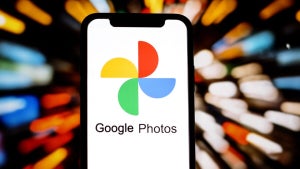News
Google will censor the explicit photos you receive on your phone
Google will blur explicit images in Android's Messages app by default for minors and optionally for adults, ensuring privacy through on-device processing.

- April 23, 2025
- Updated: April 23, 2025 at 10:40 AM

Google is taking a bold step to combat explicit content on Android phones, particularly through its Google Messages app. The tech giant has announced a new feature that will automatically blur images containing nudity before the user sees them. The goal is to create a safer, more respectful digital environment—especially for minors—by avoiding unwanted exposure to explicit content.
New image blur system will protect users from nudity
This blur system will activate when explicit images are detected in messages, hiding their content behind a warning overlay. The recipient will then be able to choose whether to view the image or ignore it. Google emphasizes that the feature is designed to enhance user experience by reducing unwanted surprises and offering more control.
The blurred images are processed directly on the device, which means that no photo data is sent to Google’s servers. This approach ensures that the detection and censoring of images remain private and local to the user’s phone. According to the company, this technique also helps prevent Google from storing or analyzing personal content.
Feature will be optional for adults, mandatory for minors
The function will be enabled by default for users under 18, while adults will have the option to activate or deactivate it in the Android settings. It will roll out to devices running Android 9 and later, making it accessible to a wide range of users globally.
Despite Google’s assurances, the new feature has sparked criticism for being overly invasive. Some users fear that false positives could result in the censoring of harmless photos, leading to frustration and confusion.
Google warns of potential false positives
The company admits the system is not perfect and may occasionally blur non-explicit content. Still, it insists on the importance of this step toward safer digital communication and user protection.
Latest from Agencias
You may also like

Elon Musk’s Solar Roof Dreams Dim As Production Targets Remain Unmet
Read more

Former Tesla Engineer Alleges Workplace Threats and Safety Concerns Against Elon Musk
Read more

3 features from ChatGPT we wish would come to Siri
Read more

Google Photos Introduces Exciting Ultra HDR Effect for Photo Enhancements
Read more

Apple TV+ Offers New Subscribers Three Months for Just $2.99
Read more

The revolution of 2D animation arrives thanks to Adobe's AI
Read more